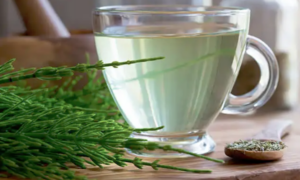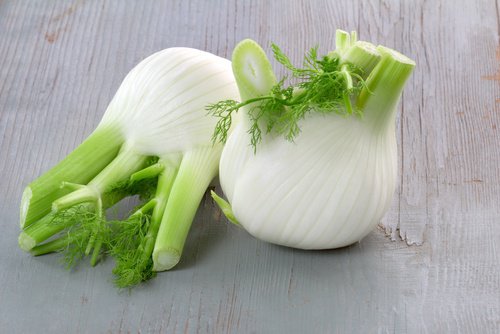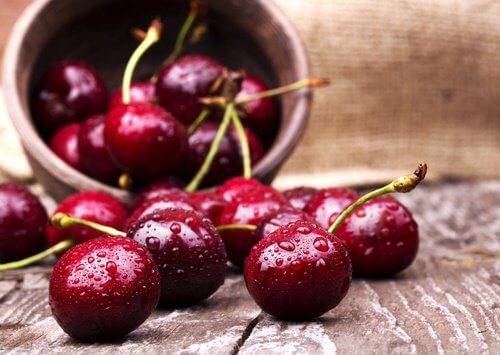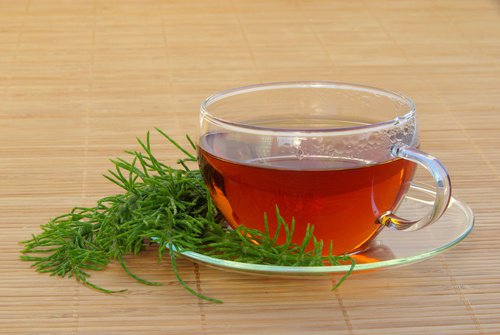8 Natural Diuretics That Can Help Eliminate Retained Fluids


Reviewed and approved by the doctor Maricela Jiménez López
Natural diuretics are foods and herbs that contain particular qualities that help eliminate retained fluids. In other words, it improves diuresis, the body’s ability to remove excess liquids that might otherwise be retained due to different conditions.
When your body begins to swell for no apparent reason, odds are it has something to do with fluid retention. This condition that can worsen and affect the cardiovascular system.
A diet high in sodium, experiencing hormonal issues, heredity factors, or eating certain foods can lead to problems eliminating retained fluids.
Fortunately, you can cope with this condition and keep it from worsening or interfering with your major bodily functions (like the metabolism) with these natural diuretics. Do you want to know more?
Natural diuretics that can help eliminate retained fluids
1. Fennel

This wild Mediterranean plant has numerous benefits that you can take advantage of through food, as a spice, infusions, and even as a tincture. I
t’s a strong diuretic that removes excess fluids and can help regulate various digestive processes.
2. Green tea
Green tea is best known for its high concentration of antioxidants and other compounds that make this beverage excellent for weight loss.
It’s also a diuretic that promotes natural cleansing. This is important for maintaining your body’s fluid balance.
3. Pineapple
This has been a popular tropical fruit worldwide for many years due to its characteristic sweet taste and high water content.
Pineapples contain about 85 percent of water and are low in calories but high in fiber, vitamin C, and bromelain. All great for eliminating retained fluids.
In addition, because it’s a good source of potassium, pineapple helps balance the body’s sodium levels. This, in turn, stimulates the elimination of excess liquids and improves various vital organ functions.
4. Cherry stems

Cherries contain about 70 percent of water. They also have a lot of B vitamins and magnesium to a lesser degree. This mineral that’s essential to enhancing your mood.
Also, due to the fact that they’re another source of potassium, cherry stems have been considered natural diuretics for a long time. This is because they contain significant amounts of flavonoids and antioxidants that facilitate the removal of water from the body.
5. Cantaloupe can help eliminate retained fluids
This refreshing fruit has very high water contents (nearly 90 percent). In addition, it has vitamins, fiber, and other compounds that help eliminate retained fluids.
Cantaloupe is also high in beta-carotene, an antioxidant that delays premature aging by stopping the damage caused by free radicals.
6. Chestnut
Also known as bitter or Indian chestnut, this plant is valued for its ability to improve varicose veins, hemorrhoids, and phlebitis. People usually only use the fruit and the seeds, but the whole plant is packed with nutrients.
It’s great for eliminating retained fluids thanks to its high contents of flavonoids like quercetin and rutin. These antioxidants stimulate the kidneys to eliminate fluids through urine.
7. Horsetail

The common name for this plant comes from the fact that clusters of the grass are shaped like a horsetail or feather duster. However, people used to consider it a mere weed and ignored it for many years.
Today, however, we know about its strong diuretic effects. This is because it’s a natural source of potassium, magnesium, and aluminum. Thus, the regular consumption of horsetail can increase your urine production up to 30 percent. It facilitates the removal of toxins and fluids and can prevent the formation of kidney stones.
Check out this article What’s Horsetail Good For?
8. Onion to eliminate retained fluids
This common vegetable is a source of minerals and trace elements like calcium, magnesium, chlorine, cobalt, iron, potassium, and more – as well as vitamins A, B, C, and E. In addition, onions are diuretic and contain almost 91 percent of water.
The regular consumption of onion, especially raw, can stimulate renal function, making it easier to remove fluids from the body and preventing various diseases.
How many of these natural diuretics do you use? We encourage you to include all these remedies in your diet if you have problems with fluid retention. Furthermore, consult your doctor about this condition so that they can tell you how best to proceed.
All cited sources were thoroughly reviewed by our team to ensure their quality, reliability, currency, and validity. The bibliography of this article was considered reliable and of academic or scientific accuracy.
- Iglesias Rosado, C., Villarino Marín, A. L., Martinez, J. A., Cabrerizo, L., Gargallo, M., Lorenzo, H., … & Russolillo, J. (2011). Importancia del agua en la hidratación de la población española: documento FESNAD 2010. Nutrición Hospitalaria, 26(1), 27-36.
- Lam, I. C., Mansilla, A. A. H., de la Nuez Ramos, E., & Veloso, E. G. (2013). Listado de plantas medicinales comunes con actividad diurética. Mediciego, 19(2).
- Pérez Machín, Maykel, Sueiro, Mario L., de la Cruz, Ania, Boffill, María A., Morón, Francisco, Méndez, Orestes R., & Cárdenas, Jaqueline. (2011). Uso tradicional de plantas medicinales con acción diurética en el Municipio de Quemado de Güines, Cuba. Revista de Biología Tropical, 59(4), 1859-1867. Retrieved February 10, 2019, from http://www.scielo.sa.cr/scielo.php?script=sci_arttext&pid=S0034-77442011000400035&lng=en&tlng=es.
This text is provided for informational purposes only and does not replace consultation with a professional. If in doubt, consult your specialist.








